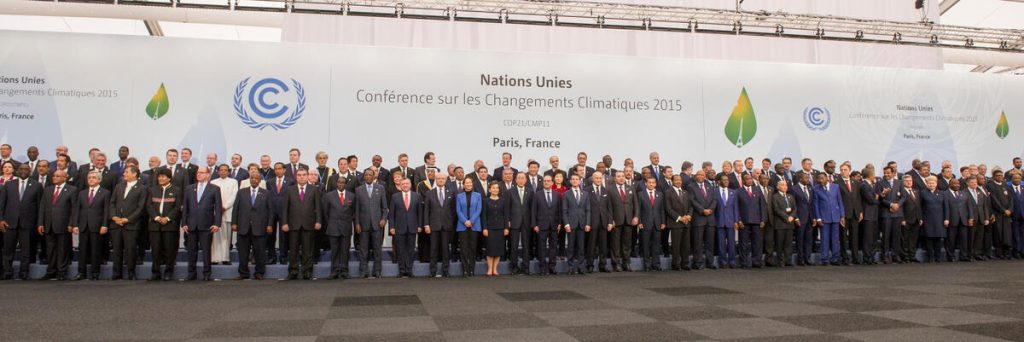Summarize this content to 2000 words in 6 paragraphs
When Donald Trump returns to the White House as U.S. President next week, he is expected to pull the country out of the Paris climate agreement again, as he did in 2017.
Most countries signed the United Nations in Paris in 2015. It marked the first time the world agreed to reduce the greenhouse gas emissions that cause global warming.
Last November, a Trump campaign spokesperson told Politico that the incoming President would withdraw the U.S. from the agreement if he won. Skift reached out to the incoming administration for comment but did not receive a response.
United States Paris Agreement Timeline
December 2015 – The United States and most countries in the world sign the pact in Paris to reduce global warming.
June 2017 – President Donald Trump announced he would withdraw the U.S. from the agreement.
November 2020 – The United States became the first nation to formally withdraw from the agreement.
January 2021 – President Joe Biden signed an executive order to reinstate the U.S. to the Paris agreement
February 2021 – The United States officially rejoined the Paris agreement
November 2024 – A Trump campaign spokesperson told Politico that the incoming President will withdraw the US from the agreement if he wins the election.
Many businesses in the U.S. travel industry support the goals of the Paris deal and some have signed a separate UN agreement, the 2021 Glasgow Declaration. That pact encourages members to reduce emissions from travel and tourism by 50% in a decade and to reach net zero by 2050.
Booking, Expedia and Hostfully are among the largest American travel companies that signed on.
Skift spoke to travel businesses in the United States about the Paris agreement and how a withdrawal might impact their companies.
‘We had no climate goals the last time the U.S. withdrew’
Southwest Airlines, the third-largest airline in the country based on passengers flown, told Skift it had no climate goals the last time the U.S. left the deal.
The airline instead announced its climate goals in 2021, to reduce its carbon emission intensity by 50% by 2035 and to reach net-zero emissions by 2050.
Most airlines tend to follow targets set out by the International Air Transport Association (IATA), instead of being aligned to the Paris agreement.
“The current industry goal of net zero carbon emissions by 2050 was adopted by the International Air Transport Association (IATA) Airlines for America (A4A) and the Federal Aviation Association (FAA) in 2021 and the International Civil Aviation Organization (ICAO) in 2022,” the Southwest spokeswoman said.
Hostfully, a company that signed the Glasgow declaration and that provides short-term rental platform software to many businesses including Airbnb, said it has no plans to leave the pact.
“Regardless of the U.S.’s participation in the Paris agreement, the current Hostfully practices would be maintained. These are core to our values and our culture. Even during times when we have cut budgets and costs (and headcount) we have maintained these commitments. They are non-negotiable for us,” a spokeswoman for the company told Skift.
‘Airlines can’t do it on their own’
American Airlines, the world’s biggest airline by passengers carried and daily flights, said it plans to keep its climate goals even under the new administration.
When asked if he anticipated changes to the airline’s climate commitments because of Trump’s stance on climate change at the Skift Aviation Forum in Dallas last November, CEO Robert Isom said, “no, conservation is really important.”
“I don’t see our views changing, we need to modernize, we need to take advantage of new tech and get ready for the inevitable time when fossil fuels become limited and American is not going to be last,” he said. “As an industry we all look to 2050 net-zero, we’ve got a lot of work to do and it’s going to take investment from government and the industry. Airlines can’t do it on their own.”
What happened the last time the United States withdrew from the Paris agreement?
When the United States withdrew from the Paris agreement in 2017, it resulted in over 50 rollbacks in policies targeting climate. The United States is the second largest emitter of greenhouse gas emissions in the world after China.
Despite this, a study by the Carbon Action Tracker, which analyzes global climate pledges and action, found the backtrack would have led to an increase in 2030 greenhouse gas emissions of only 3%.
According to the Environmental Protection Agency (EPA), U.S. greenhouse gas emissions have generally decreased over time, even though they fluctuate from year to year. In 2023, emissions fell by 1.9%, the lowest level since 1969.
The incoming administration has sent mixed signals around climate change. Trump as recently as November last year called climate change a “big hoax.”
Chris Wright, Trump’s pick for energy secretary, said in his confirmation hearing in the U.S. Senate on Wednesday that he believed climate change is a “real and global challenge that we need to solve.”
Booking and Expedia did not respond to a request for comment.
Skift’s in-depth reporting on climate issues is made possible through the financial support of Intrepid Travel. This backing allows Skift to bring you high-quality journalism on one of the most important topics facing our planet today. Intrepid is not involved in any decisions made by Skift’s editorial team.















